Lesson 1
Welcome!
Welcome to Udacity. Takes 5 minutes to get familiar with Udacity courses and gain some tips to succeed in courses.
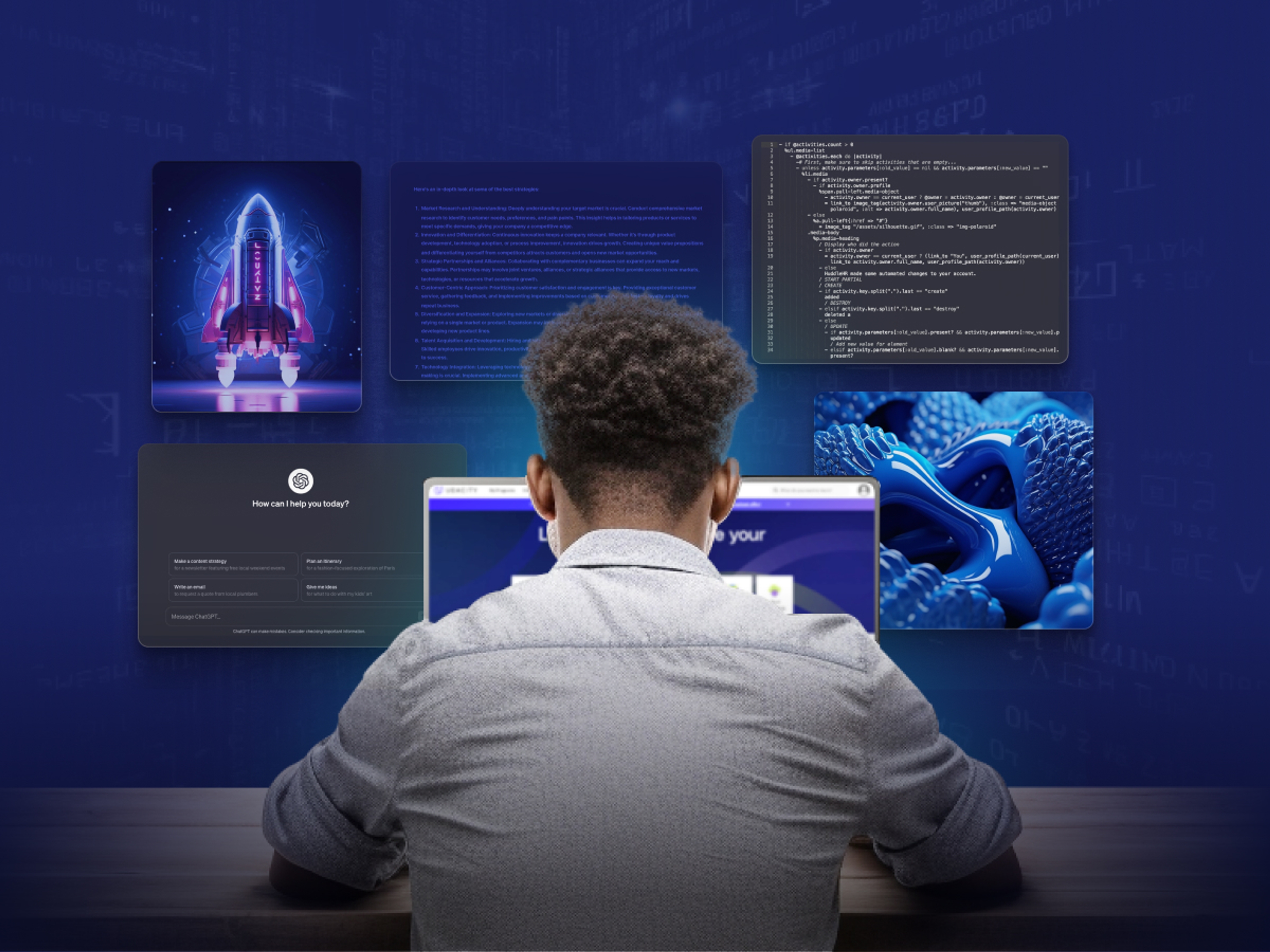
Nanodegree Program
Embark on a transformative journey into Generative AI! We'll start by diving into the essentials with an introductory course, progress to mastering text generation with Large Language Models, unravel the complexities of image creation in computer vision and cap it off by bringing AI to life in real-world applications. From foundational theories to building sophisticated chatbots and AI agents, this program will empower you with job-ready skills in the exciting field of Generative AI.
Embark on a transformative journey into Generative AI! We'll start by diving into the essentials with an introductory course, progress to mastering text generation with Large Language Models, unravel the complexities of image creation in computer vision and cap it off by bringing AI to life in real-world applications. From foundational theories to building sophisticated chatbots and AI agents, this program will empower you with job-ready skills in the exciting field of Generative AI.
Intermediate
4 months
Real-world Projects
Completion Certificate
Last Updated July 12, 2024
Skills you'll learn:
Prerequisites:
Course 1 • 45 minutes
Welcome to Udacity! We're excited to share more about your Nanodegree program and start this journey with you!
Lesson 1
Welcome to Udacity. Takes 5 minutes to get familiar with Udacity courses and gain some tips to succeed in courses.
Lesson 2
You are starting a challenging but rewarding journey! Take 5 minutes to read how to get help with projects and content.
Course 2 • 4 weeks
Dive into generative AI with this course, which explores its fundamental principles and relationship to prior artificial intelligence innovations. We will walk through popular generative models and how they work, how deep learning models are developed using tools like PyTorch and Hugging Face, and finally, how to customize pre-trained open-source models for a specific use case. In the project, you will apply a cutting-edge technique called parameter-efficient fine-tuning (PEFT), which allows for the adaptation of massive foundation models with minimal usage of computational resources.
Lesson 1
This lesson provides the foundational knowledge needed about generative AI: what it is, how it's applied, and explanations of some popular algorithms and architectures for text and image generation.
Lesson 2
This lesson covers the essentials of deep learning for the generative AI practitioner. From perceptrons to transfer learning including an introduction to the PyTorch and Hugging Face Python libraries.
Lesson 3
This lesson explores foundation models in AI, how they differ from traditional models, how you can apply them to various tasks and evaluate their performance, and the ethical implication of their use.
Lesson 4
This lesson covers a range of techniques for adapting foundation models, including prompt tuning, in-context learning, full fine-tuning, and parameter-efficient fine-tuning (PEFT).
Lesson 5 • Project
Load and customize a Hugging Face foundation model using parameter-efficient fine-tuning. This technique allows you to harness the power of a pre-trained model for your custom task.
Course 3 • 4 weeks
Dive deeper into how computers understand and create language, and learn how to build a custom chatbot using unsupervised machine learning, prompt engineering, and retrieval augmented generation. We'll start with a high-level overview of the types of LLMs, the differences between them, and how best to account for their strengths and weaknesses. Then we'll get into the internal details, including natural language processing (NLP) techniques like tokenization, as well as modern transformer architectures and attention mechanisms. Finally, we'll build a practical LLM application that combines an LLM with a custom dataset.
Lesson 1
This lesson covers the types of LLMs, an intuitive understanding of their limitations and capabilities, inference and decoding hyperparameters, and strategies for effective prompt engineering.
Lesson 2
This lesson covers the essential Natural Language Processing topics needed to use the latest LLM technology. You will learn the basics of NLP and then dive into text encoding and text generation.
Lesson 3
In this lesson, you will open up the black box of transformer architectures and learn about the attention mechanisms and other components that make these powerful models possible.
Lesson 4
In this lesson, we will learn how to create a custom Q&A bot powered by OpenAI! Along the way, you'll learn how OpenAI works and how to leverage its powerful language processing capabilities.
Lesson 5
In this lesson, you will learn how to construct a relevant, quality dataset for fine-tuning large language models and performing retrieval augmented generation.
Lesson 6 • Project
For this project, you will use everything you learned in this course to create a custom chatbot using a dataset of your choice.
Course 4 • 4 weeks
Learn how computers process and understand image data, then harness the power of the latest Generative AI models to create new images.
Lesson 1
In this lesson, you will define image generation and understand its relevance in AI and machine learning.
Lesson 2
Learn how computers see images and perform key image processing techniques using classic image processing techniques such as image transformation, noise reduction, and more.
Lesson 3
Explore the landscape of Gen AI tools for Computer Vision and learn how they are evaluated. Learn what a generative adversarial network is and how it is utilized to generate images.
Lesson 4
In this lesson, we will be exploring Vision Transformers and the architecture that makes them work. Along the way we will explore Vision Transformers like DALL-E, DINO, and SAM.
Lesson 5
Learn the fundamentals of transformers. Then, get hands-on with the creation of a diffusion algorithm and work with Huggingface Diffusers to generate and work with images.
Lesson 6 • Project
In this project, you will utilize Generative AI to take a famous painting and swap out the background with an image generated by Stable Diffusion.

Head of AI Engineering
Brian Cruz leads AI Engineering at Advocate, where Generative AI is used to help disabled individuals apply for benefits. He previously worked at Samba TV, contributing significantly to advancements in AI for edge devices, as well as at Salesforce, where he led ML engineering for sales revenue forecasting.
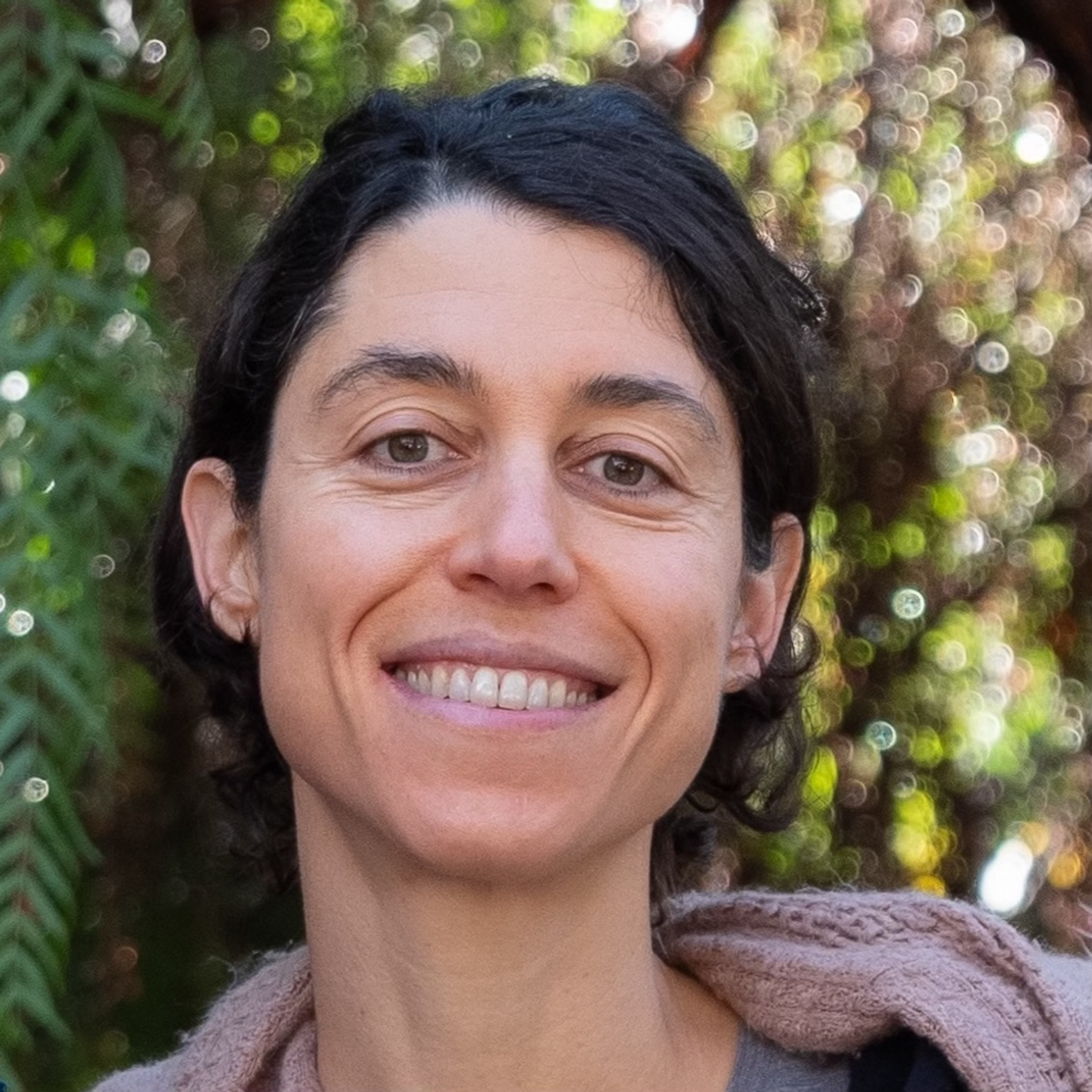
Research Scientist
Emily McMilin is a Senior Research Scientist and Independent Researcher working at the intersection of NLP and Causal Inference. She obtained her Ph.D. in Electrical Engineering from Stanford University and prior to that an M.Sc. from University of Victoria, and a B.Sc. from Stanford in Symbolic Systems.

Machine Learning Engineer
Victor Geislinger is a machine learning engineer and is dedicated to sharing his knowledge with others. Victor recently joined Google as a software engineer focused on AI/ML but has been programming and educating others for over a decade since studying physics and math at the University of California, Santa Cruz.

Chief Scientist, Reasonly AI
Jason has developed deep learning algorithms and AI applications at Lyft self-driving, Spotify and Google DeepMind. Formerly a Stanford Online and UN keynote speaker, he's earned a M.S. in Machine Learning from Georgia Tech and coauthored NLP and computer vision papers with MIT.

Principal AI Researcher
Erick Galinkin is a hacker and computer scientist, leading research at the intersection of security and artificial intelligence at Rapid7. He has spoken at numerous industry and academic conferences on topics ranging from malware development to game theory in security.

Principal Data Scientist
Giacomo Vianello is an end-to-end data scientist with a passion for state-of-the-art but practical technical solutions. He is Principal Data Scientist at Cape Analytics, where he develops AI systems to extract intelligence from geospatial imagery bringing, cutting-edge AI solutions to the insurance and real estate industries.

UC Berkeley ML Researcher
Chuyi Shang is a machine learning researcher at Berkeley and a member of the Machine Learning @ Berkeley organization. He conducts research in video understanding and multimodal learning at Berkeley's AI Research Lab (BAIR), and has also conducted ML research at Berkeley's Haas School of Business.

UC Berkeley ML Researcher
Annabel Ng is an EECS undergrad at UC Berkeley, where she's researching brain-inspired vision models to improve image encodings in a Berkeley AI Research lab. She also leads the workshop division at Machine Learning @ Berkeley where she delivers lectures and develops interactive ML content for students.
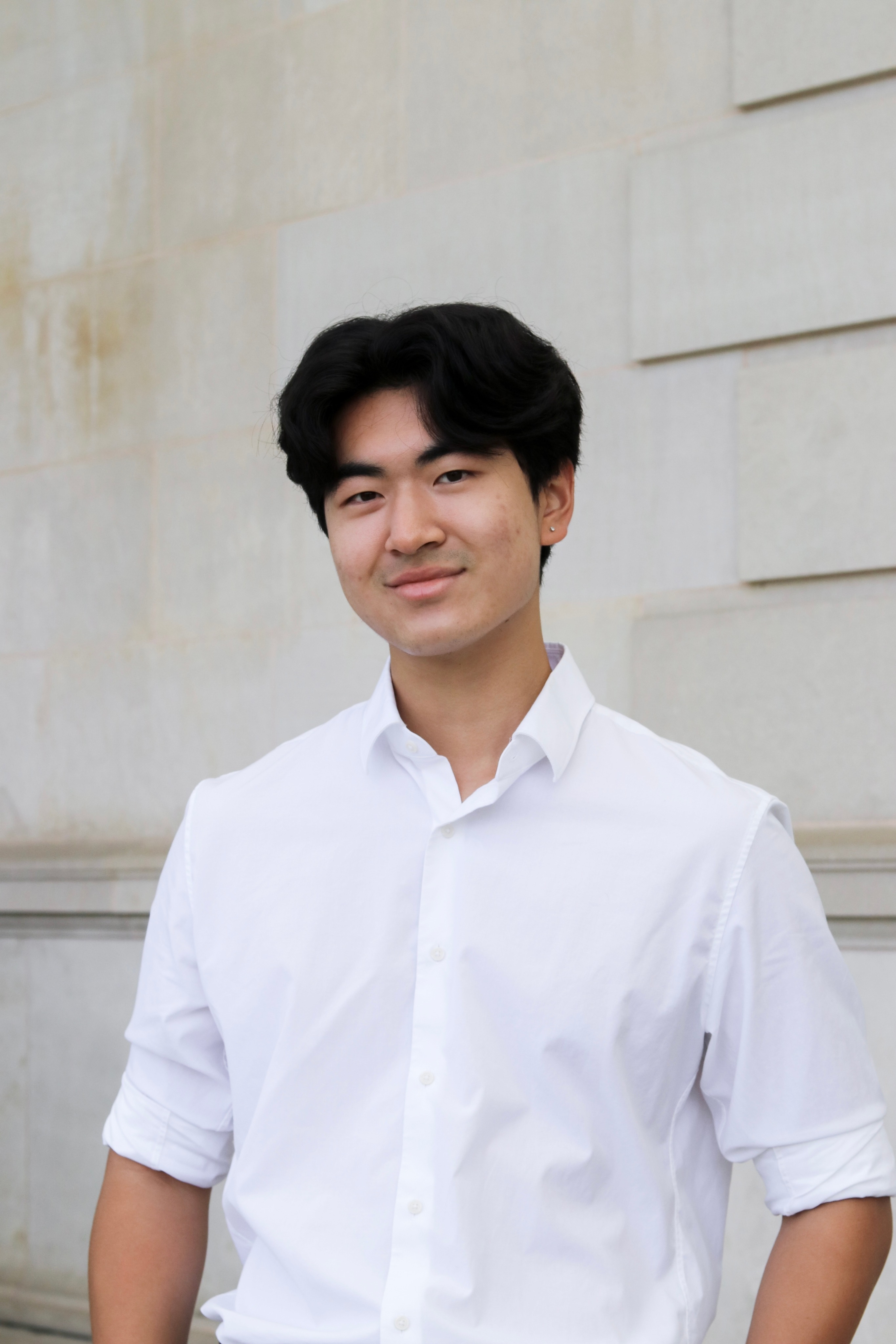
Derek Xu, VP of Education of Machine Learning @ Berkeley
Derek Xu is the Vice President of Education of Machine Learning @ Berkeley. He studies EECS and Business Administration through the M.E.T. Program and teaches a modern computer vision course at UC Berkeley. Derek was previously a machine learning engineering intern at TikTok working on the ML Platforms team, and an undergraduate researcher at UC Berkeley Sky Computing Lab. He also has experience as a software engineering intern at Salesforce and Ramp.

ML Researcher at BAIR
Nathaniel Haynam is an ML Researcher at BAIR, where they push the edge of inverse reinforcement learning for multi-agent simulations. They are a ML Engineer and Lecturer in Machine Learning at Berkeley, teaching a modern computer vision course at UC Berkeley. They are a computer science major at UC Berkeley.

Senior Technical Content Developer at Udacity
Valerie is a Sr. Technical Content Developer at Udacity who has developed and taught a broad range of computing curricula for multiple colleges and universities. She is a former professor and software engineer for over 10 years specializing in web, mobile, voice assistant, and full-stack application development.

CEO and Co-founder of LanceDB
Chang has nearly two decades of experience building and teaching data / ML tooling. He was the second major contributor to pandas, an adjunct at Columbia for introduction to data science, and ran engineering at TubiTV focusing on recommender systems. Most recently, Chang co-founded LanceDB to build the next generation database for AI.

Senior Staff Engineer
Sergei Kozyrenko is a technology leader with over 20 years of diverse industry experience - he’s built trading engines, banking software, learning management systems, co-founded an AI startup that accurately predicted street parking availability and even automated shooting of high-powered lasers at blocks of chocolate.
Combine technology training for employees with industry experts, mentors, and projects, for critical thinking that pushes innovation. Our proven upskilling system goes after success—relentlessly.
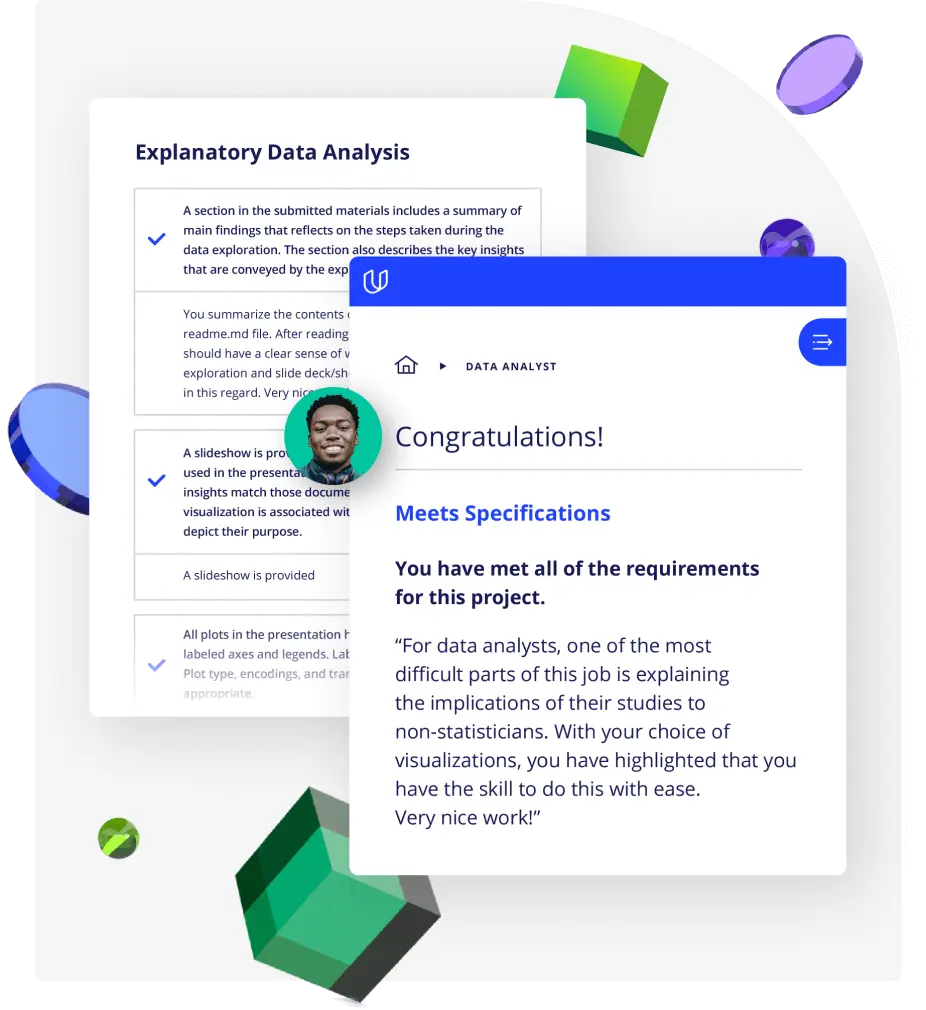
Demonstrate proficiency with practical projects
Projects are based on real-world scenarios and challenges, allowing you to apply the skills you learn to practical situations, while giving you real hands-on experience.
Gain proven experience
Retain knowledge longer
Apply new skills immediately
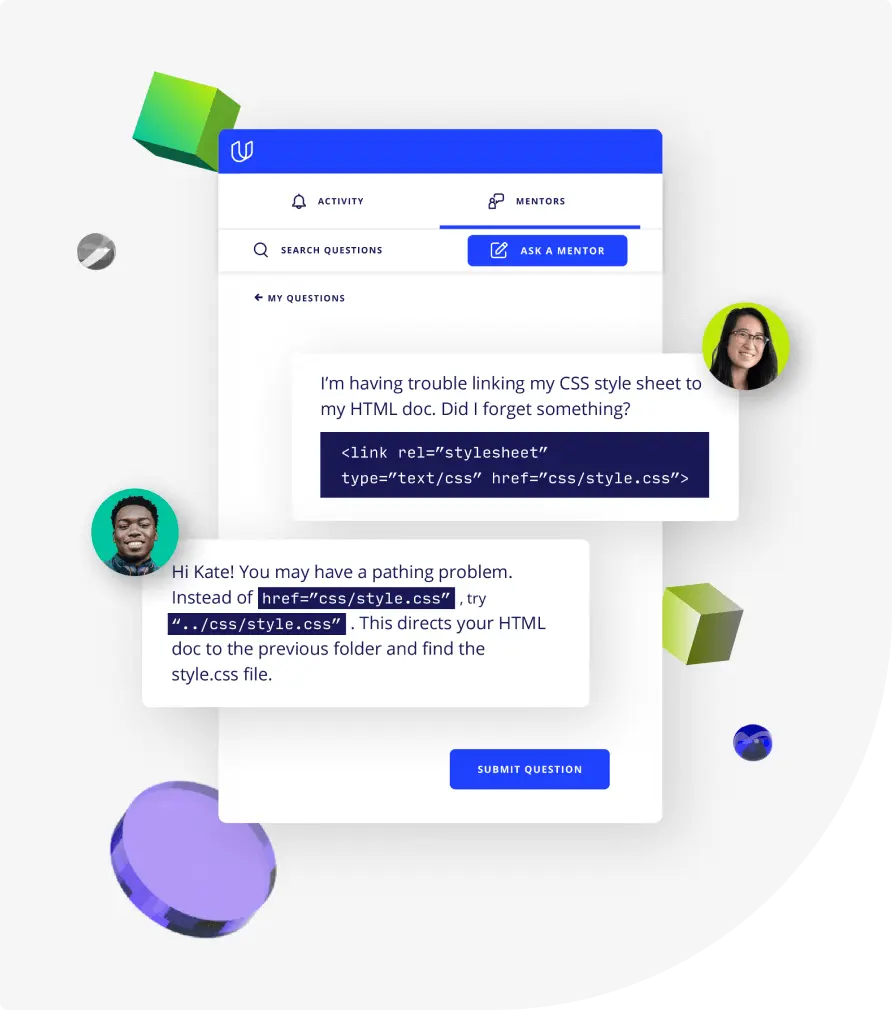
Top-tier services to ensure learner success
Reviewers provide timely and constructive feedback on your project submissions, highlighting areas of improvement and offering practical tips to enhance your work.
Get help from subject matter experts
Learn industry best practices
Gain valuable insights and improve your skills

Unlimited access to our top-rated courses
Real-world projects
Personalized project reviews
Program certificates
Proven career outcomes
Full Catalog Access
One subscription opens up this course and our entire catalog of projects and skills.
Average time to complete a Nanodegree program
7 hours
, Fluency
4 weeks
, Intermediate
4 weeks
, Intermediate
4 weeks
, Intermediate
4 weeks
, Intermediate
(909)
4 months
, Intermediate
(87)
4 months
, Advanced
4 weeks
, Intermediate
(275)
2 months
, Advanced
(496)
5 months
, Advanced
(81)
2 months
, Intermediate
(328)
2 months
, Advanced
4 weeks
, Beginner
(450)
3 months
, Advanced
4 weeks
, Intermediate
(256)
2 months
, Intermediate

Generative AI
7 hours
, Fluency
4 weeks
, Intermediate
4 weeks
, Intermediate
4 weeks
, Intermediate
4 weeks
, Intermediate
(909)
4 months
, Intermediate
(87)
4 months
, Advanced
4 weeks
, Intermediate
(275)
2 months
, Advanced
(496)
5 months
, Advanced
(81)
2 months
, Intermediate
(328)
2 months
, Advanced
4 weeks
, Beginner
(450)
3 months
, Advanced
4 weeks
, Intermediate
(256)
2 months
, Intermediate